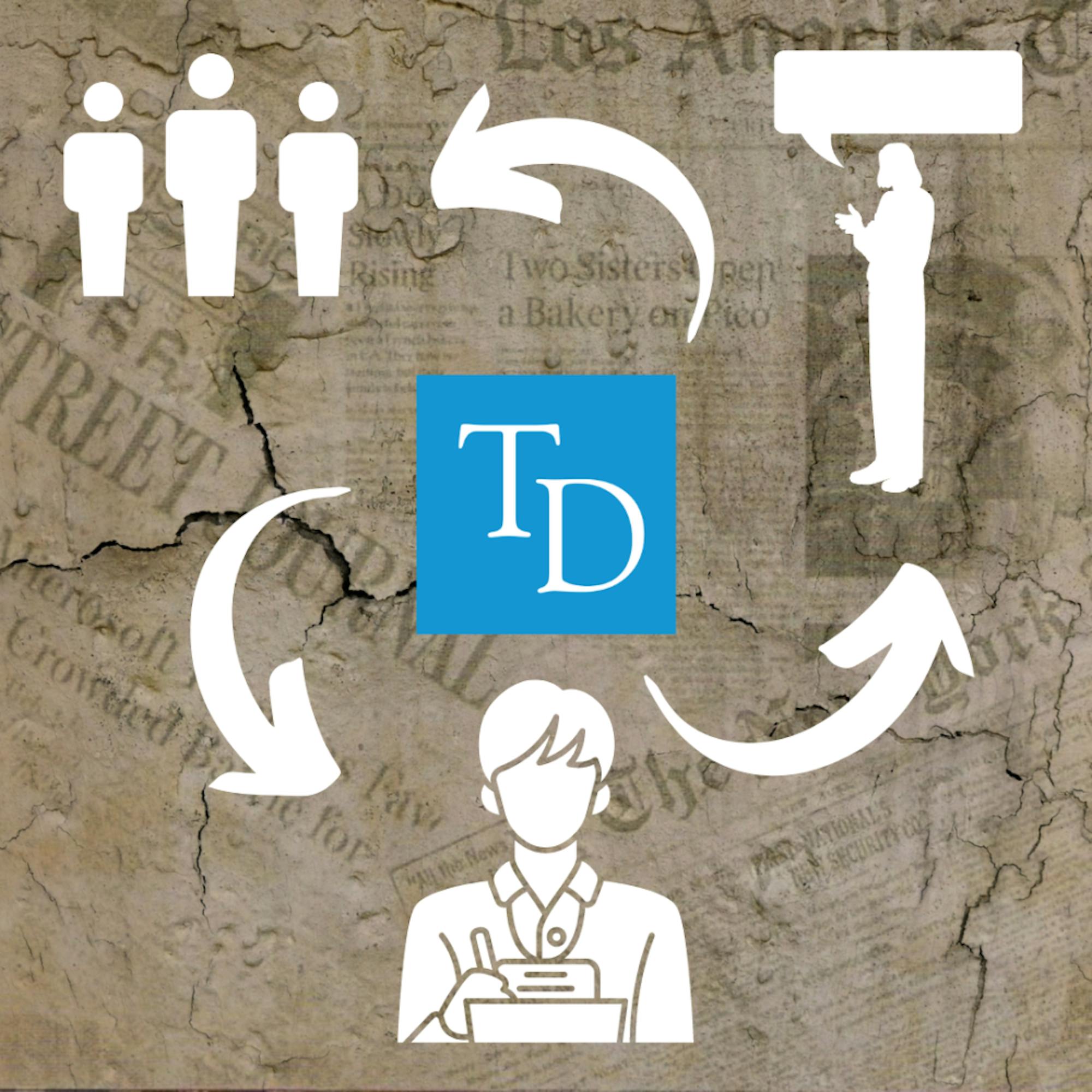With tomorrow marking 54 years since the Supreme Court’s ruling in Tinker v. Des Moines, a case fundamental in affirming the First Amendment rights of students, we write to stress the importance of a responsible free press and the important role of student newspapers in holding university leadership accountable and ensuring an informed readership.
The Daily has benefited from the ruling in Tinker v. Des Moines and the protections for student journalists which our predecessors have sought to establish for us in the past 43 years. As we celebrate the anniversary of the Daily’s first-ever issue this Saturday, we write to reflect on the work that these protections have enabled and consider the important role of a responsible free student press.
As a financially independent student newspaper, our coverage does not bend to the wishes of the university and other powerful institutions.
This fall, the Daily published two articles outlining investigations into the workplace environments of several crucial administrative offices at the university.
Early in the fall semester, the Daily published an article that explored a poorly managed Office of the Provost, especially when it came to handling the university’s approach to Diversity, Equity, Inclusion and Justice following the departure of then-Chief Diversity Officers Rob Mack and Joyce Sackey.
Several weeks later, the Daily published an investigation which uncovered discrimination and a hostile workplace culture in Tufts’ admissions office at the hands of Dean of Admissions JT Duck. We subsequently called for Duck to be placed on leave and removed from this year’s admissions cycle until an external law firm concludes its independent investigation.
In 2018, the Daily reported that University President Anthony Monaco attended a meeting at Harvard with Mohammed bin Salman, crown prince and prime minister of Saudi Arabia. Tufts did not disclose the meeting, held on March 25, 2018, between Monaco, five other leaders at Boston-area universities and Crown Prince Mohammed.
The crown prince has long been criticized for blatant human rights abuses. Just a month after the Daily published the aforementioned investigation, he ordered the execution of Washington Post columnist Jamal Khashoggi, drawing international condemnation.
The Daily published an editorial in January 2019 urging Tufts to cut its ties with the Sackler family and Purdue Pharma, as Tufts and Purdue Pharma helped ignite the current opioid crisis: The Sackler family used their wealth to push pro-opioid messaging at and through Tufts’ Sackler Graduate School of Biomedical Sciences beginning in the late 1990s. Tufts has since dropped the Sackler name from all university programs and buildings.
By sharing stories not otherwise promoted by the university, and by demanding accountability from the Tufts administration, the Daily recognizes the privilege that Tinker v. Des Moines and other rights outlined in the First Amendment have granted us as student journalists.
This privilege conferred to the Daily comes with great responsibility. As such, we remind our staff, readers and fellow student journalists of three key obligations to which we must adhere.
First and foremost, the Daily has a responsibility to its own staff. The writers, editors, photographers and other staffers who help create the Daily are themselves members of the Tufts community. Therefore, it is crucial for the Daily to support its staff members as they learn and grow as journalists. As such, we resolve to promote and stand by their work in the face of unfair attacks from individuals or other sources. Particularly as we find ourselves in a hostile media environment, where accusations of ‘fake news’ are ascribed to controversial pieces and journalists face unprecedented attacks, it is integral for us to support our journalists as people and students in the face of hate.
This responsibility is also why the Daily never shares draft articles with anyone before the article publishes. A writer’s work is theirs, and sharing drafts outside the organization opens the article up to undue modification.
Second, the Daily has a responsibility to its sources. In the most basic sense, it is our duty to ensure that a source is never misquoted or misrepresented in print or on the internet. However, there is also a more nuanced responsibility the Daily owes its sources.
Often, sources disclose information to the Daily confidentially or may become endangered if their identity is revealed publicly. In these nuanced environments, it is important for the Daily to maintain a positive relationship built on trust and respect with its sources — and protect their privacy — in order to continue informing the community and facilitating discourse among the widest variety of its members.
Finally, the Daily also has a responsibility to its readers to be “the first and foremost source readers turn to for news, information and ideas about Tufts University and the Tufts community, as well as Tufts’ perspective in the media landscape of its host communities,” according to the Daily’s constitution. As such, it is critical that the information we publish meets the highest standards of factual accuracy and clarity.
These standards, which guide our reporting and editing process — and which can lend themselves to any student newsroom — help to establish an organization that can serve as a crucial source of information and as a public forum for a healthy community such as Tufts.






